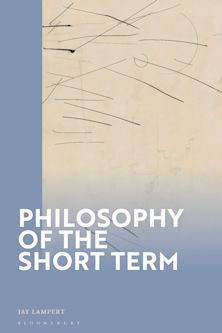- Home
- ACADEMIC
- Philosophy
- Metaphysics
- Complexity and Analysis
Complexity and Analysis
This product is usually dispatched within 2-4 weeks
- Delivery and returns info
-
Flat rate of $10.00 for shipping anywhere in Australia
You must sign in to add this item to your wishlist. Please sign in or create an account
Description
Wherever we look, we notice complexity. Philosophically, the concept constitutes a tangled web of problems, in theory as well as daily life. Complexity and Analysis is a meticulous rendering of these problems, tackling the seldom considered nature of complexity that confronts ontological analysts and holists alike. Stewart Umphrey expertly describes the limits of analysis as they have come to light within mathematics, the natural sciences, and analytic philosophy, explaining how Aristotle came upon, and sought to move beyond, the limits of ontological analysis. In trying to understand any complex entity, Umphrey argues, one succeeds in meeting the criterion of metaphysical adequacy only if one fails to meet the crietrion of epistemological adequacy. Ranging across an array of subjects including Kantian and Hegelian idealism, this book provides a superb account of how our own complexity presents not only theoretical problems, but ethical and political dilemmas of great practical significance.
Table of Contents
Chapter 2 Aristotle's Transanalytic Metaphysics
Chapter 3 Ways of Complexity
Chapter 4 Entities
Chapter 5 Analogy
Chapter 6 Dialectic
Chapter 7 Ways of Negation
Chapter 8 Integrity
Chapter 9 Ecstasy
Chapter 10 Community
Product details
| Published | 12 Feb 2002 |
|---|---|
| Format | Paperback |
| Edition | 1st |
| Extent | 352 |
| ISBN | 9780739103067 |
| Imprint | Lexington Books |
| Dimensions | 230 x 151 mm |
| Publisher | Bloomsbury Publishing |
About the contributors
Reviews
-
Stewart Umphrey's Complexity and Analysis is an astounding achievement, a modern guide for those who are perplexed (whether they know it or not) about first philosophy. Umphrey's work is original, informed, critical, clear, and never loses sight of the whole. He argues that analysis is necessarily limited (with reasons analysts will understand), explores the problem of where it is possible to begin philosophy, and proceeds from an examination of the alternatives faced at each stage of the inquiry. His work is critically informed by the philosophical tradition and by contemporary work in a variety of fields; conclusions are drawn where evident, judgment is suspended whenever alternatives remain. Umphrey's intellect is rare in this age of specialization; he is a modern Leibniz, an exception to the complementarity between breadth and depth.
William J. Edgar, SUNY - Geneseo, SUNY - Geneseo
-
Umphrey's work is a richly analytical, informative, and imaginative work. It is sensitive to the full range of experience. Dissecting the near, umphrey keeps an eye on the remote. Examining hypotheses, he is mindful of the alternatives. Arguing for definite views, he recognizes their shortcomings. . . Umphrey's work is of great merit.
Philosophy in Review
-
It [Complexity and Analysis] is a first-rate work, written with clarity, elegance, and grace on a supremely important topic. . . .The scope of Umphrey's book is vast but there is no sacrifice of depth. Numerous topics are discussed, which is to be expected and indeed is necessary in a work on the topic of complexity, and Umphrey's knowledge of the relevant literature is impressive. . . . Umphrey's discussion of Hegel alone can stand by itself as an important contribution to philosophy.
Panayot Butchvarov, University of Iowa



































